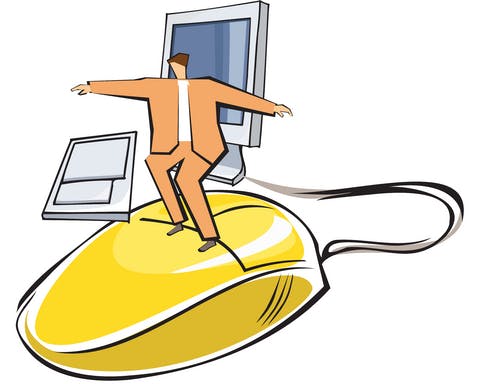By John A Gallagher
We are seeing a major, major uptick in employees being terminated because they surfed the Internet at work. Indeed, as this article makes clear, monitoring Internet usage at work is the newest HR focus.
Why are employers doing this?
To get rid of employees they do not want anymore for (alleged) “legitimate, non-discriminatory, non-retaliatory” reasons.
Why do employers care about having a” legitimate, non-discriminatory, non-retaliatory” reason for firing an employee?
Engaging in “willful misconduct”
First, all many employers nowadays have Internet policies that essentially forbid employees from using work computers to surf the Internet “for personal reasons.” So, if they can prove that the employee violated that rule, they can assert the employee engaged in “willful misconduct,” and is therefore disqualified from getting unemployment compensation benefits.
Second, employers who have “legitimate, non-discriminatory” reasons for firing an employee have a much easier time defeating discrimination and retaliation claims. It is easier to argue that discrimination or retaliation was not the root cause for the termination when a work rule was “clearly violated.”
Here is the problem for employers:
- Not a good “legitimate, non-discriminatory” reason — One of my favorite ways to prove that an employer was motivated by a discriminatory or retaliatory motive is to show that, even though the employer was aware that other people engaged in similar conduct, only my client was “singled out” and terminated. Everyone surfs the Internet at work, it seems, so firing someone for that reason really makes it seem as though the employee was “singled out,” thereby making it easier for employee-side attorneys like me to prove a discrimination or retaliation case by simply showing that “everyone does it, and the company knows it.”
- Not strong evidence of willful misconduct: At unemployment hearings, referees are seeing this reason come up so commonly that they are in many cases very suspicious as to whether it is the “true reason” for the termination. This of course makes it easier to win the unemployment hearing. Moreover, an employee will not be deemed to have engaged in willful misconduct by violating a work rule if the employee can demonstrate that the rule was never enforced (i.e. that everyone does it). A little good, clear testimony can develop such evidence.
Advice for using the Net at work
The bottom line?
The best advice is to stay off the Internet except on your lunch break. Of course, stay away from pornography and the like, and you probably don’t want to spend a great deal of time on a given site (such as your Fantasy Baseball site). Also, understand that anything you say or do on the company’s computer may be examined at any time by your employer.
If you follow all of these guidelines, and are nevertheless fired, you probably want to speak with a qualified employment lawyer about your unemployment claim, and maybe a lawsuit as well (if the facts suggest unlawful discrimination or retaliation were the “real reason” that you were fired).
This was originally published on attorney John A. Gallagher’s Employment Law 101 blog.
